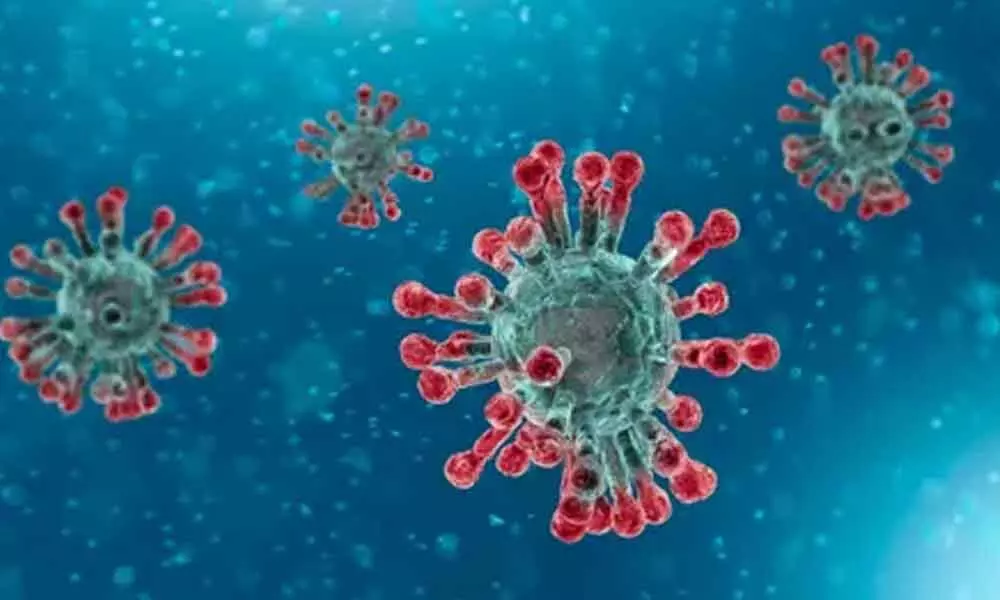Live
- Jagga Reddy scotches BJP buzz on Congress’ survival in State
- Police tried to reduce poll percentage, alleges TDP
- Eight dead as fire breaks out from a private bus after collision with tipper in Palnadu
- Ponguleti, other MLAs on junket to Kerala
- Modi already got full majority in LS: Shah
- 79.43% polling registered in Rajahmundry LS constituency
- Putin to visit China tomorrow
- I-T officer dies in fire at Delhi Income Tax Building
- EVMs locked in strong room in JNTUA campus
- Mumbai hoarding tragedy toll 14
Just In
Centre's efforts enormous, still more need to be done


The National Human Rights Commission (NHRC) has asked the Centre, through the Union Home Ministry, to issue suitable...
The National Human Rights Commission (NHRC) has asked the Centre, through the Union Home Ministry, to issue suitable guidelines/advisory/Standard Operating Procedure to all the States and UTs emphasising that while implementing corona lockdown guidelines, the public servants, including police personnel, should behave in a sensible manner with the people, particularly belonging to vulnerable sections, respecting human rights relating to their life, liberty and dignity. A response is expected at the earliest.
These directions have come after the Commission took cognizance of a communication from one of its special monitors and human rights activist, Ms Maja Daruwala, alleging that in order to effectively implement the lockdown guidelines, the public servants, including the police personnel, across the country, sometimes under tremendous pressure, tend to deal with the people, especially the ill-informed poor labourers, in a very harsh manner undermining their rights.
Issuing the directions, the Commission has observed that it appreciates that the government agencies are sincerely working to deal with the unprecedented situation to fight the spread of COVID-19 virus, and it is apparently a tough challenge for the them as well as the general public. However, it found it appropriate to bring the issues raised by the complainant to the notice of the Central government and send the same to it through the Union Ministry of Home Affairs. The complainant has also said that police are doing many good things during the lockdown; chopping of a policeman's hand is unforgivable but those, among them, who are using this time to be cruel and harsh must be stopped. Allegedly, those who are illiterate and less informed, mainly the poor labourers and daily wages workers etc, are facing extreme difficulties due to shortage of food and other facilities for themselves and their families.
They can be asked to stay off the streets with some degree of compassion - without being cruel and abusive using excessive force. Recently, the Commission had also taken cognizance of a complaint raising the issue of alleged violation of human rights of the people suffering from mental illness during lockdown. India has no doubt announced a Rs 1.70 lakh crore stimulus package to ease the situation. What a part of the measures announced actually represents "incremental" budgetary allocations? The answer to this is not straightforward. Wages under the Mahatma Gandhi National Rural Employment Guarantee Act (MGNREGA), have gone up by Rs 20 per day.
The Act assures every rural household, whose adult members are willing, at least 100 days of wage employment every year. This hike in wages, an 11% increase assuming the same number of person-days of work, is hardly adequate, given that the government retains the power to suppress the number of days per worker. One would have hoped for far more concrete steps — increasing the number of days one can claim, a significant rise in the daily wage, etc. In rural areas, MGNREGA remains pivotal to alleviate distress, though its potential remains sadly underutilised. MGNREGA needs to focus on creating durable assets and providing as much employment as possible in these difficult times. Informal sector and pensions too need to be taken care of. Any fiscal stimulus needs to meet two concurrent goals—one, to put more money in the hands of poor households immediately, and two, to identify a pro-poor mechanism of creating productive assets. The government seems to have addressed the first priority, and not quite the second. The government needs to be more pragmatic.

© 2024 Hyderabad Media House Limited/The Hans India. All rights reserved. Powered by hocalwire.com






